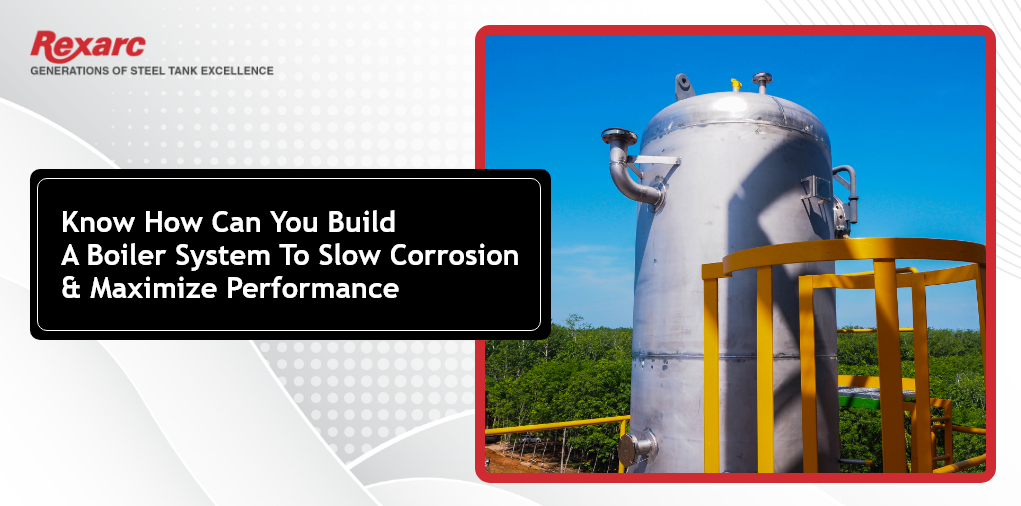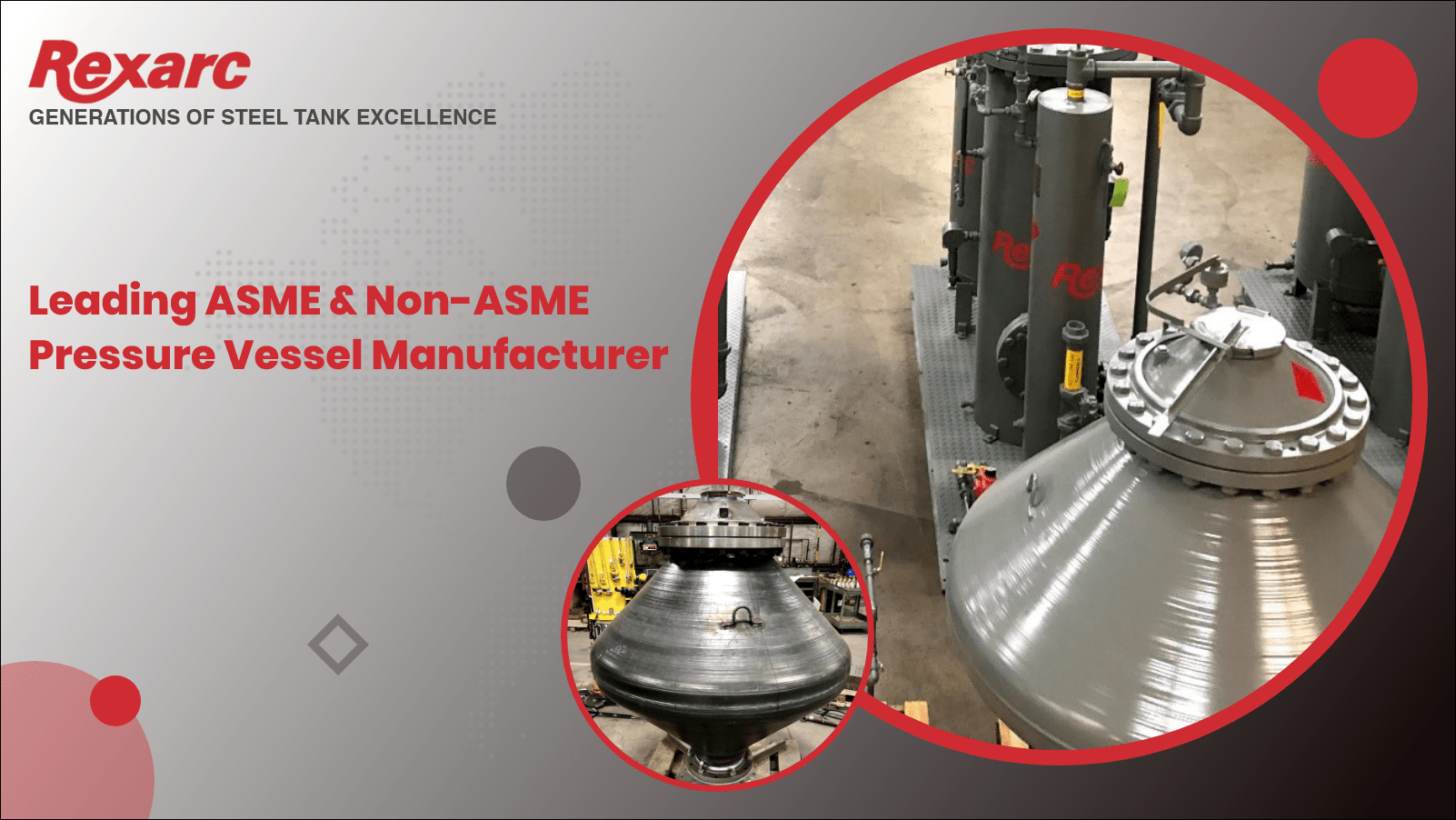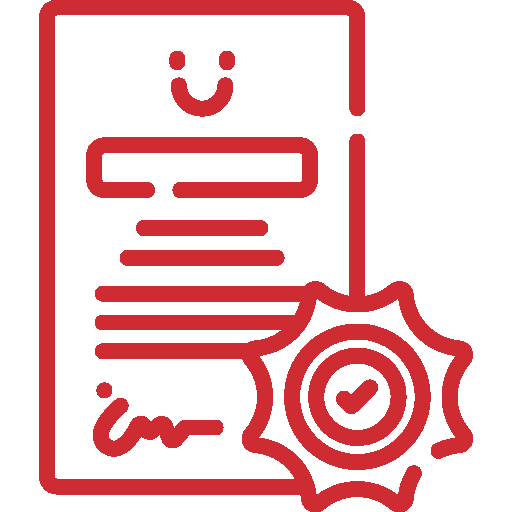Rexarc is currently open from 7:30 AM – 4:00 PM EST, Monday – Friday. Read More
Rexarc is currently open from 7:30 AM – 4:00 PM EST, Monday – Friday. Read More

As an industrial boiler system manufacturer, you know corrosion causes most system failures. After all, a boiler system is constantly exposed to the corrosive effects of water and gases. Not only is this a performance issue, but a safety one as well. Premature system failures damage your good reputation.
Boiler system deaerators are at particularly high risk. Failures most frequently occur at the welds and in adjacent areas. This makes sense since the deaerator is exposed to the excess oxygen and gases in the feedwater prior to removing it to maximize boiler system operation.
So, as a manufacturer, how can you build a system to slow corrosion and maximize performance?
One way is to source your deaerators from a fabricator specializing in manufacturing steel tanks exposed to corrosive elements and harsh environments.
Pressure Vessel Manufacturers Bring Steel Tank Excellence
Pressure vessel manufacturers, particularly those constructing vessels to ASME standards, deal with corrosion issues every day. They have literally built a business choosing materials and proper welding processes for durable, long-lasting steel tanks.
Rexarc, a pressure vessel fabricator with generations of steel tank excellence, is particularly poised to provide industrial boiler manufacturers with quality deaerators that can extend system life.
In addition to building ASME-coded and noncoded tanks for a variety of industries, Rexarc works with leading boiler and deaerator manufacturers as a supplier. With nearly a century of expertise in building high-performance custom steel tanks, Rexarc knows the materials and processes to use in constructing spray, tray and vacuum deaerators complementary to your systems. They have the experience, skills and knowledge to help enhance your boiler system performance.

Materials Knowledge
The primary material of a boiler system is steel, specifically various grades of stainless steel. Where water and steel mix, there is oxidation. Remember that oxidation is the reaction between excess oxygen in the air or water and the ferrous components of steel. It really cannot be avoided when the two mix, but adjusting the materials increases corrosion resistance and slows its effects.
Choosing the right stainless steel grade can make a difference in the oxidation and corrosion of the deaerator:
Welding Materials and Processes Aid Corrosion Prevention, Too
Having a variety of materials available for deaerator fabrication means having a variety of welding processes available is necessary. Pairing the optimal welding process with the best-performing materials will yield the best corrosion resistance and long-term performance of deaerators.
Welding options include:
Each welding process also has its best uses and performs best with certain alloys over others.
GMAW/MIG welding is typically used for thinner sheet metals. It is the weld type of choice for stainless steel and aluminum.
Arc welding (SAW and SMAW) can be used on a variety of metals and allows. Most commonly, it is used for carbon steel, stainless steel, cast iron, ductile iron, and high- and low-alloy steel. This technique also can be used on aluminum, and nickel and copper, and their alloys.
GTAW/TIG welding is used on non-ferrous metals such as aluminum, magnesium, and copper alloys. It also is used on stainless steel.
Pressure vessel manufacturers with an extensive record of performance know the best combination of materials and processes for you and your customers. They can be a powerful partner in delivering the quality and performance your customers expect.
Opt for a Specialized Manufacturing Partner
You know the industrial boiler market. You know how to make amazing boilers. You also know that corrosion is your enemy, yet your device puts all the ingredients in close quarters and asks them to play well with each other.
There is little you can do about the outcome. However, you can choose to optimize your parts and components so that they perform better and longer than your competitors. You can give your customers better return on investment for their boiler purchase.
By choosing a specialized manufacturer with deep knowledge and skills in all the elements of deaerator manufacturing, you set yourself apart from the others. Rexarc has the skills and experience to help elevate your boiler performance.

We are a one stop shop from custom vessel production to full skidding, plumbing and instrumentation.

We stand by our processes and communicate with you on your project status as much or as little as you would like.

We continually reinvest in our people, business, and equipment technology to ship quality products on time.
